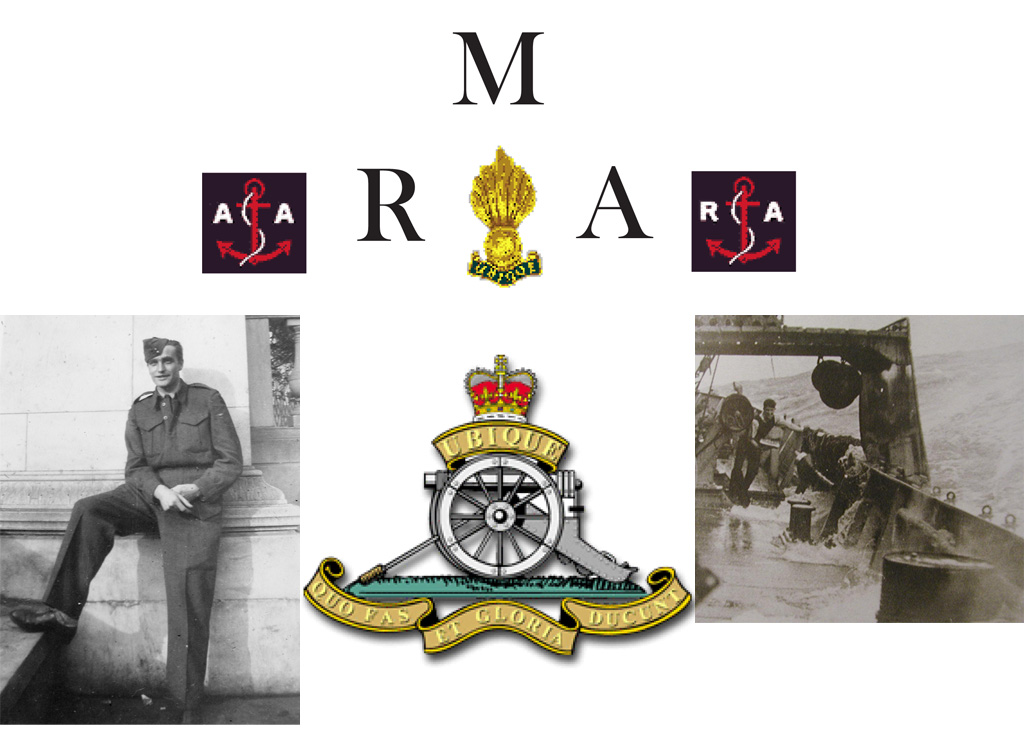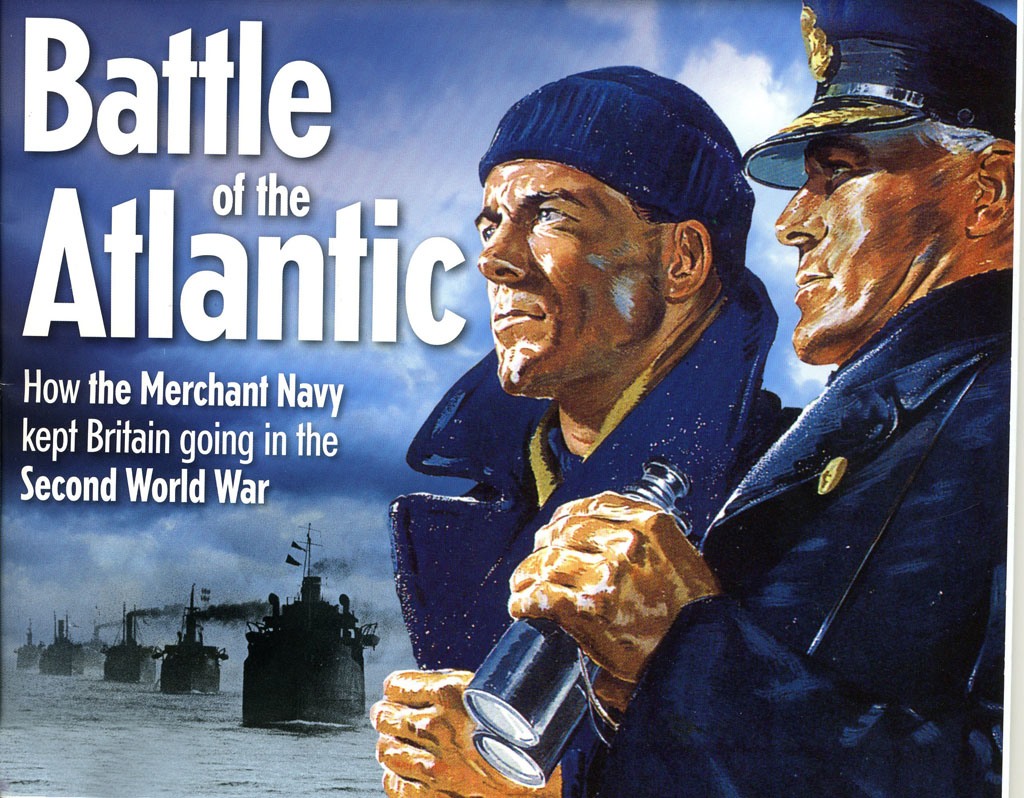1940 The DEMS : Arming Merchant Ships
Nimbo Simmons, old cycling friend, and John Osborne met up on leave in 1941
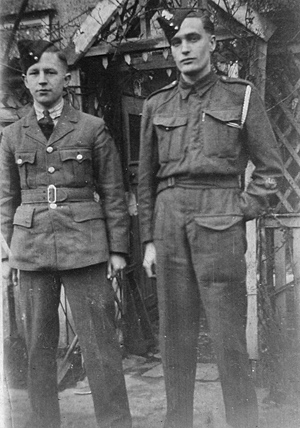 |
It was June 1940. The war was progressing rapidly since September 1939, when Germany invaded Poland, starting the conflict between the Axis Powers-
Germany and Italy, and the Allies- Great Britain, France, Belgium, Holland and many other countries.
In England, the beaches were patrolled in expectation of invasion. Cities were totally blacked out at night in preparation for the air raids to come.
I was twenty years old and was called to duty to Bill of Portland, an island off the Dorset coast where the Germans were expected to cross the English Channel.
I joined the Welsh Infantry Regiment and underwent three months of intensive training. This included 50mile hikes carrying heavy packs. We also patrolled the beaches
and sometimes slept in “Bunkers”-damp gun shelters. We were trained in gunnery practice, which was very useful later.
When not on patrol, we lived in wooden huts with bunk beds. During one air raid, we all dived under our bunks. Our hut was not directly hit, but the concussion from
a bomb that hit the Women’s Army quarters blew down one wall, causing a heavy radiator to fall on the soldier under the bunk next to mine.
He was killed instantly and a woman in the other hut was badly injured.
An unexploded bomb hit the Armoury where all the ammunition was stored, and lodged halfway into the roof. I was among the soldiers ordered to move all the
explosives out of the building. The bomb was disarmed by sappers without exploding.
After this I was lodged in the fort, which was deep in earthwork walls and was much safer.
However, a bomb from another raid jarred a bayonet off the wall of our room directly through the back of a chair.
Only a few minutes before this raid my mates and I were playing cards at a table, one of us sitting on this chair. A very narrow escape!
Getting ready to Ship Out
This was when I was dubbed “Dodger” as a nickname because I was seen slipping down a side street to avoid an unpleasant work duty. This name followed me for years, whenever meeting an old shipmate I would hear “Dodge”!
After this training and a brief leave with my family in London, I volunteered for duty with the D.E.M.S.(Defense Equipped Merchant Ships), and reported to Tiger Bay,
Cardiff, in Wales, one of forty men. I was the last to volunteer.
Tiger Bay was, and still is, one of the toughest ports in the world. Our newly formed group had no officers and were billeted in an empty warehouse where we slept on the floor.
John. F. Osborne in 1940
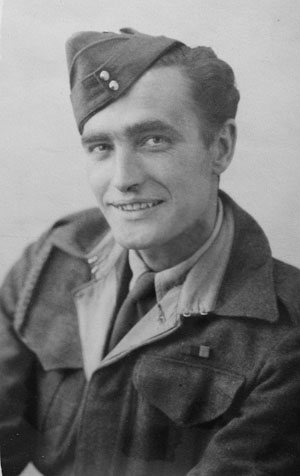 |
At Tiger Bay we reported to a young naval lieutenant and were issued some Navy equipment – a hammock, sea boots, duffel coat, heavy socks and sweaters to
be used on the ships to which we would be assigned. We also kept our Army uniforms and some civilian clothes. We (and fortunately most officers) didn't know wether we were Army or Navy.
Going to sea for the first time
A Hotchkiss M1914 Machine Gun (Ours had no mount, and we handheld it!)
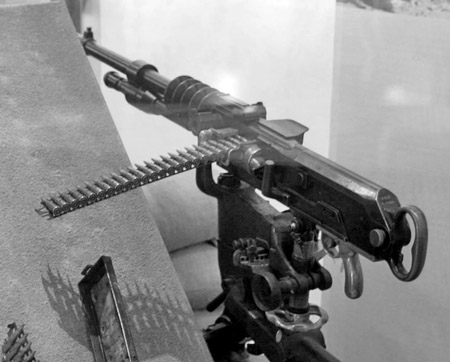 |
I was assigned to serve as a gunner with my partner, Welshman Taffy Watts, on a Dutch coastal ship. We were issued a very heavy machine gun called a Hotchkiss,
with 50 rounds of ammunition. We were to defend the ship if it were attacked by aircraft. We had never seen this gun before and were told it was French.
I took the big gun out of its wooden case and put it on the wardroom table. "What are we going to do with that??", Taffy asked. "We're going to take it apart, so we understand it and know how to fix it", I replied. I had taken apart many different machines in my previous work. So Taffy and I took the gun apart and put it back together again. Then we thought we knew what to do if it had any problems.
Until 1941 we worked together on a variety of ships plying between the ports of the Irish Sea and Falmouth and Cornwall, carrying various cargo.
A Dutch coastal vessel was our first ship- we had never been to sea before!
We left Cardiff for Liverpool. We did not get far before we had trouble- the bilge pump broke down and the weather was very stormy.
We were shipping water in the engine room so the skipper had all of us form a chain using buckets to bail out.
By now I was seasick so I was the last one topsides who had to throw the water overboard.
How long we did this I don’t know. The storm was worsening so the skipper steered to a small island.
We anchored on the lee side out of the swell and kept bailing the water out. The next day the storm let up and we headed for Holyhead on
the north Welsh coast and had a new pump installed. As soon as possible we set sail for Liverpool and docked on Christmas Day, 1940.
The following day (Boxing Day), Taffy and I were sent back to Cardiff by train and we took the Hotchkiss with us. We were Gunners now, and we had the gun to prove it. We had this same gun on several trips.
NEXT: 1941-1942

